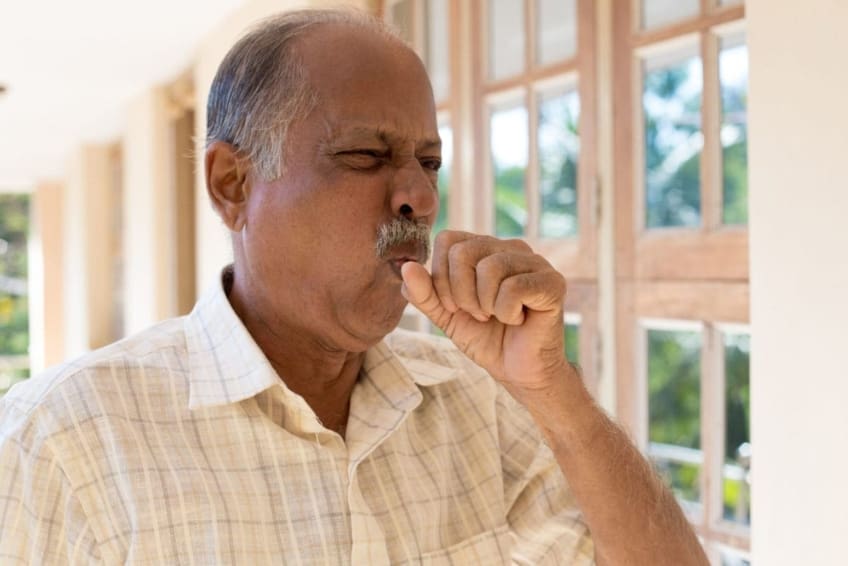
What is pleurisy?
Pleurisy is a medical condition that affects the lining of your lungs and chest. The lining can become inflamed or irritated. This happens when excessive fluid collects in the “pleural space.” Typically, there is a small amount of fluid in the space, which is normal.
Pleurisy symptoms and treatment
Signs to watch for
The main symptom of pleurisy is chest pain. It can be sharp and sudden. It is painful to cough or take a deep breath. Ongoing chest pain is common. Shortness of breath is common, too. You might develop a fever or other aches. More symptoms depend on the cause of pleurisy.
Treatment options and pain relief
Your doctor bases pleurisy treatment on the underlying cause. If you have a bacterial infection, your doctor may prescribe an antibiotic. For a viral infection, they may recommend an antiviral medicine, although most viral infections need to run their course without specific treatment. When another condition causes your pleurisy, your doctor will focus on treating that issue.
To ease your symptoms, you can take over-the-counter medicine. Acetaminophen (one brand: Tylenol) or ibuprofen (brands: Advil, Motrin) can help reduce pain and inflammation. Cough syrup may also help control excessive coughing. However, don’t completely suppress your cough—doing so may increase your risk of pneumonia. Resting, especially by lying on the painful side, can provide some relief. In rare cases, your doctor may recommend surgery to remove a fluid buildup around your lungs.
What causes pleurisy?
Pleurisy is often caused by an infection. The infection could be viral (flu). It could be bacterial (pneumonia or tuberculosis). Other causes include:
- Asbestos-related disease (from home or work exposure)
- Certain cancers (lung, lymphoma, and mesothelioma)
- Chest trauma
- A blood clot that travels to the lung
- Rheumatoid arthritis
- Lupus (an autoimmune disorder)
How is pleurisy diagnosed?
Contact your doctor if you have pleurisy symptoms. Your doctor will do a physical exam. He or she will ask you questions about your medical history. Your doctor will listen to your lungs with a stethoscope. He or she can hear the lining rubbing together. Based on these results, your doctor can order several tests. These include:
- Blood test. An infection may show up in your blood. The test also can detect autoimmune disorders. This includes rheumatoid arthritis or lupus. Pleurisy could be a symptom of both conditions.
- X-ray. Your doctor can use an X-ray to get a picture of your chest. This will show if there is something in the space between the lining. There may be air or gas in the area. That condition is called a pneumothorax. Lung disease or a lung injury can cause this condition.
- Your doctor may use sound waves to get a picture of your chest. The view may detect a pleural effusion. You can get this when fluid builds up in the pleural space.
- Computerized tomography (CT). This checks for other causes of pleurisy. A chest CT may find a blood clot in the lung. This condition is called a pulmonary embolism. It also could find hemothorax. This occurs when blood gets in the pleural space. It can be caused by a chest injury, chest surgery, or lung cancer.
- Electrocardiogram (ECG or EKG). This test will help your doctor rule out heart problems or defects.
- Fluid removal. This is a procedure that might be performed in your doctor’s office, the emergency room, or a surgical center. Your doctor will apply a numbing medicine to the skin around your chest muscles. He or she will insert a small needle into that area to collect fluid. That sample will be sent to a lab.
Can pleurisy be prevented or avoided?
Treating a bacterial infection (early) may prevent pleurisy. It is more difficult to treat a viral infection. Finding and treating other causes of pleurisy may help.
Managing pleurisy symptoms and treatment
Discomfort is the main factor in living with pleurisy. You will have ongoing pain until the infection goes away or another cause is treated. Try to slow down and take it easy while you have pleurisy. Don’t do any activity that will cause rapid breathing or excessive coughing.
Questions to ask your doctor about pleurisy symptoms and treatment
- How can I tell if it is pleurisy or a common cold?
- When should I see a doctor?
- Who is more likely to get pleurisy?
- If I got it once, am I more likely to get it again?
Learn more about pleurisy symptoms and treatment
National Heart, Lung, and Blood Institute: Pleural Disorders
![]()
Copyright © American Academy of Family Physicians
This information provides a general overview and may not apply to everyone. Talk to your family doctor to find out if this information applies to you and to get more information on this subject.












